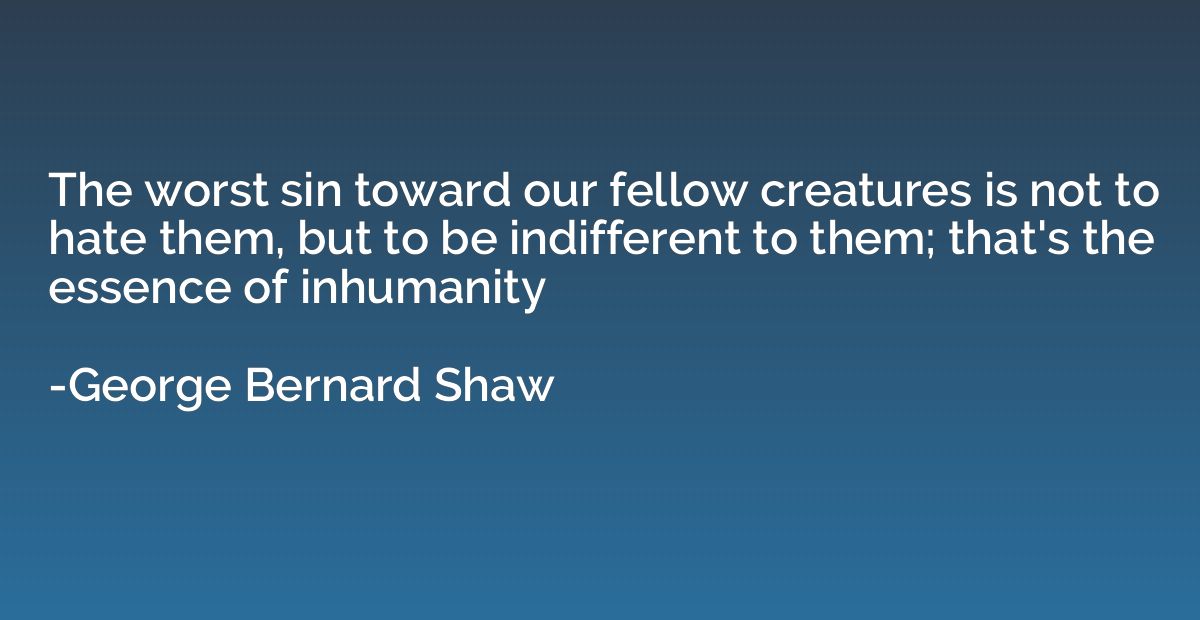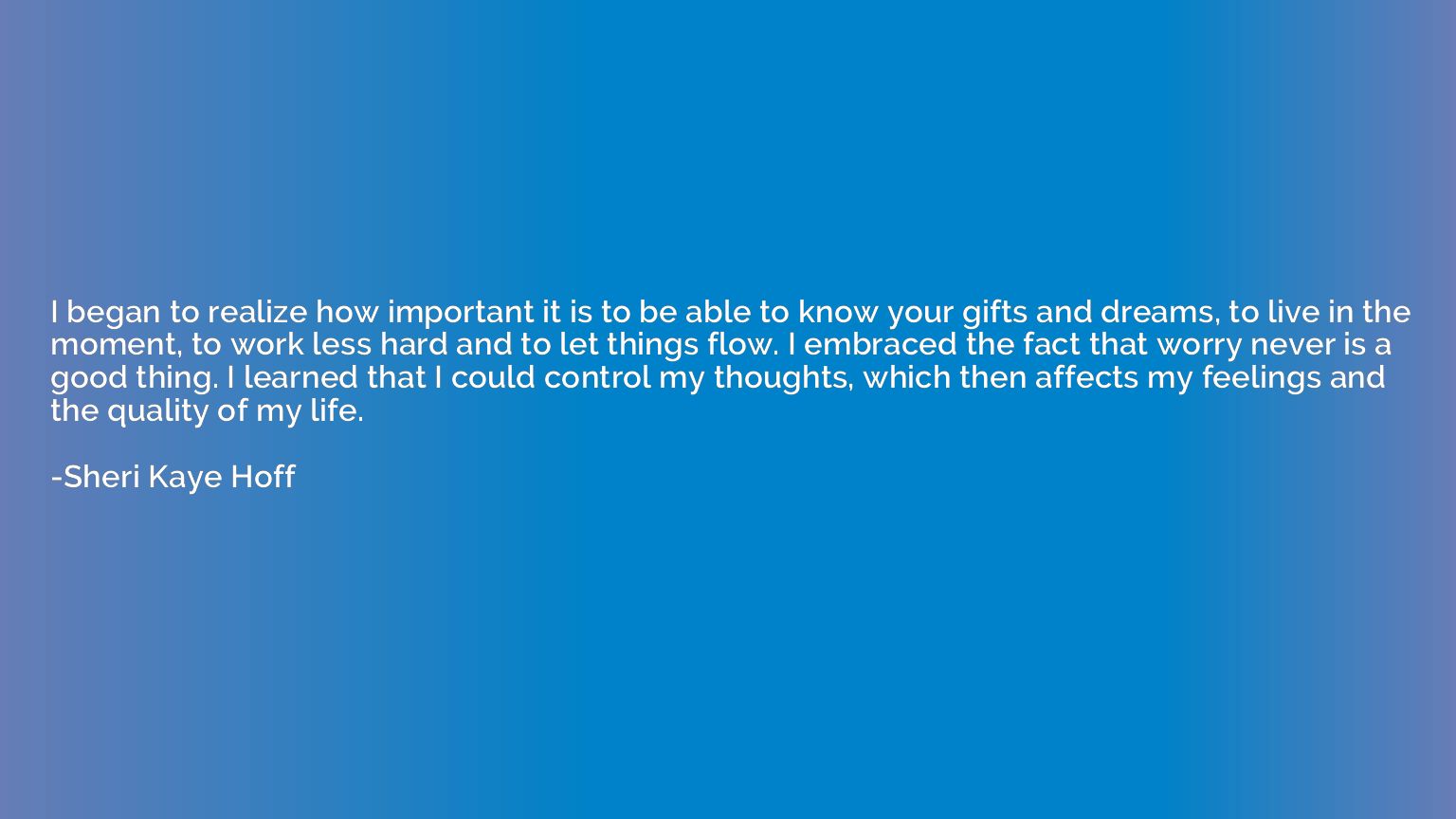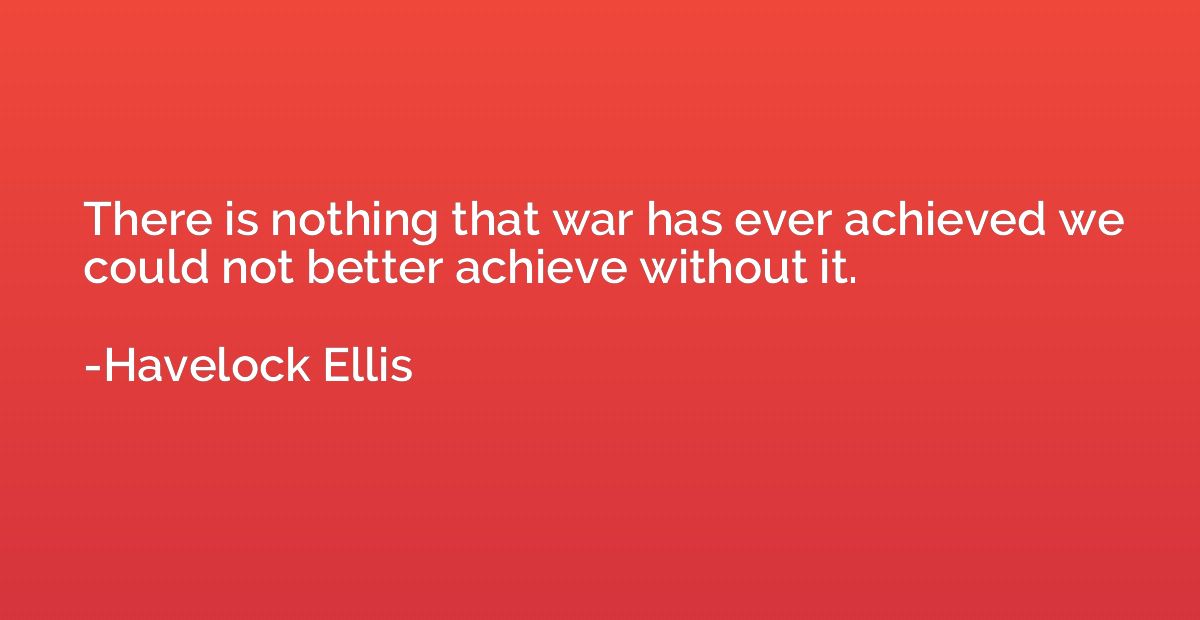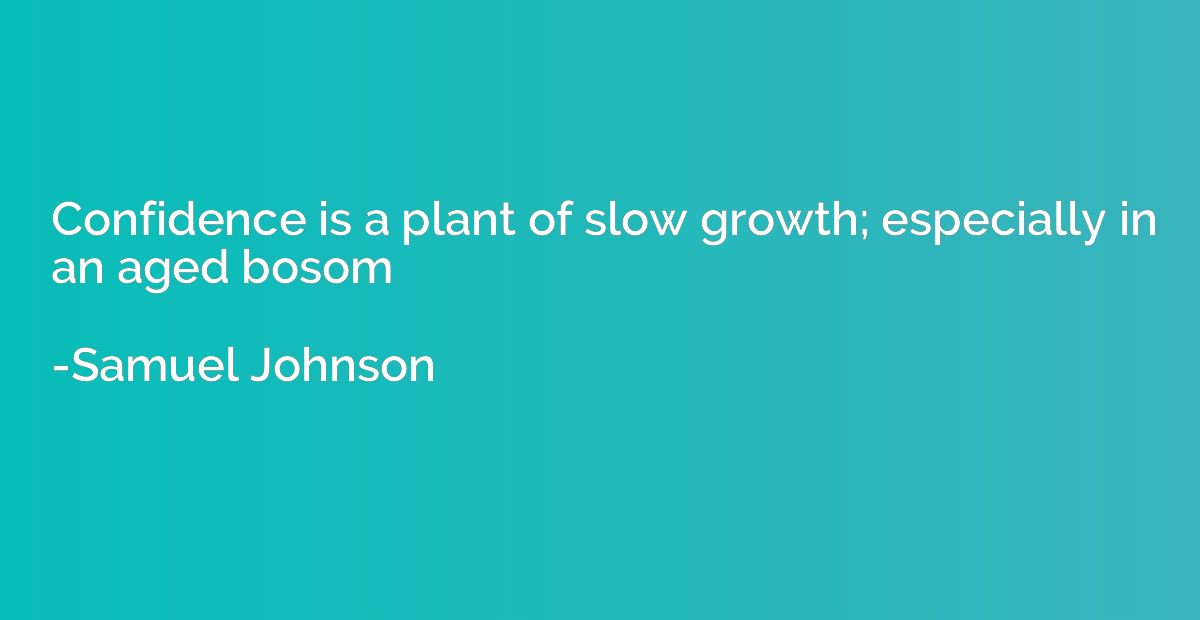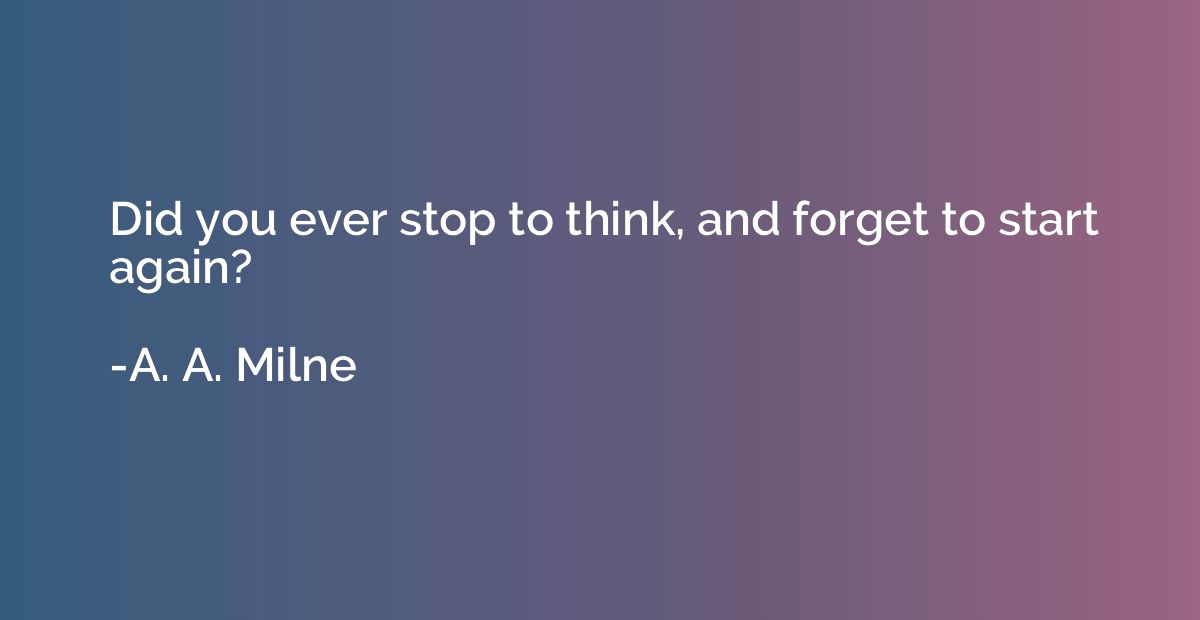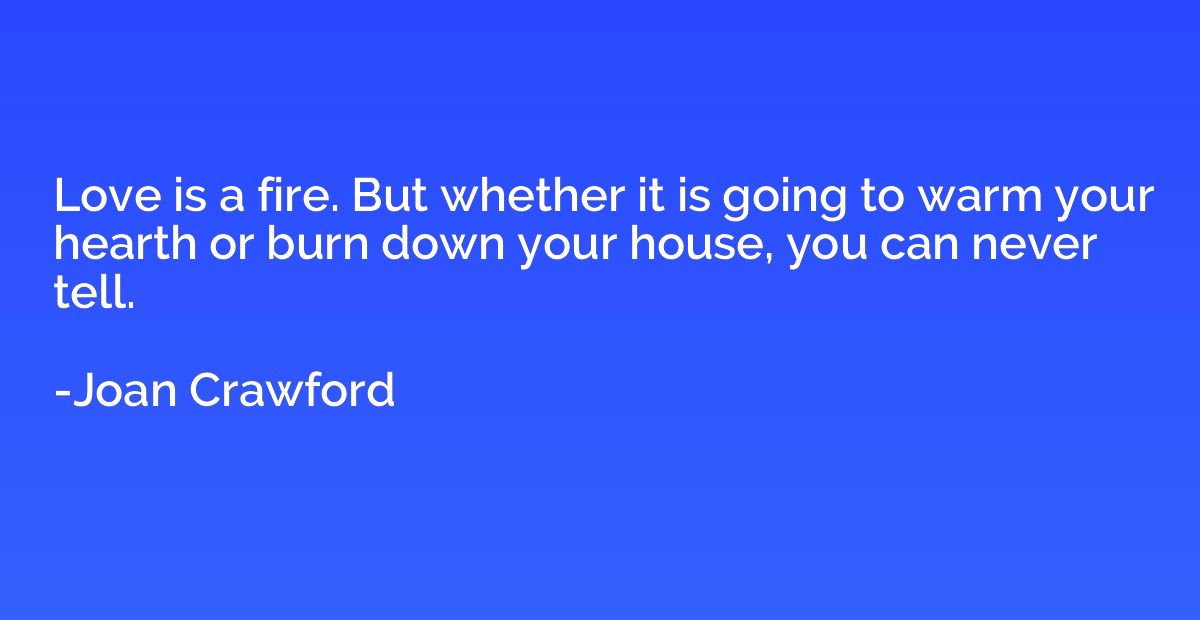Quote by Stephen C. Meyer
The information contained in an English sentence or computer software does not derive from the chemistry of the ink or the physics of magnetism, but from a source extrinsic to physics and chemistry altogether. Indeed, in both cases, the message transcends the properties of the medium. The information in DNA also transcends the properties of its material medium.
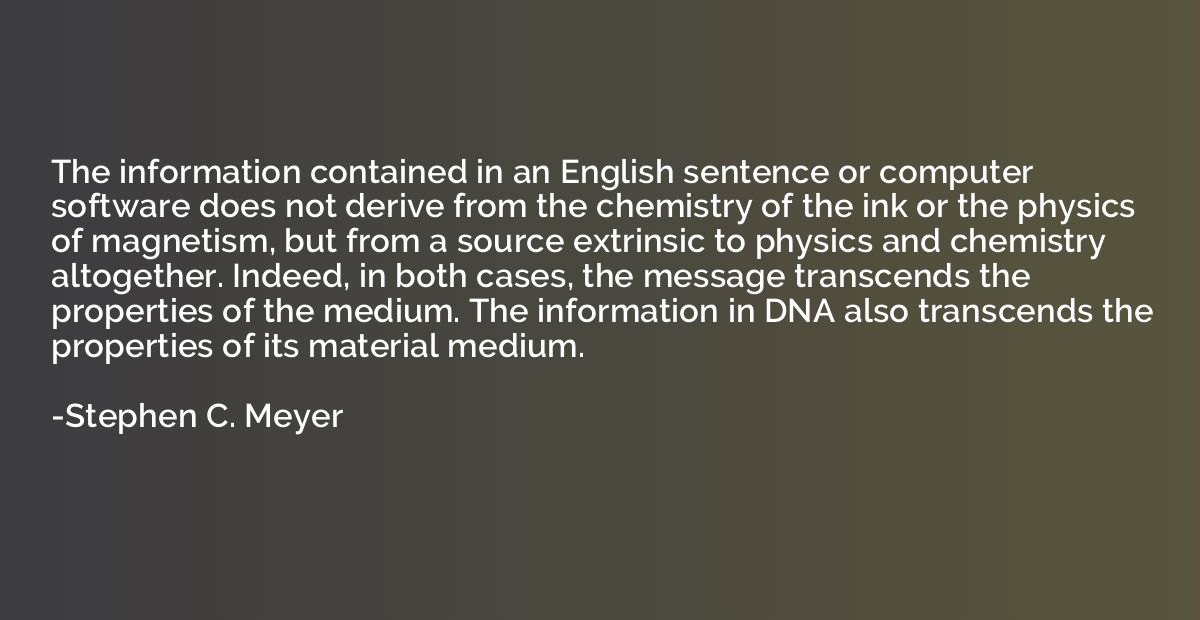
Summary
This quote suggests that information in various forms, such as language, software, and even DNA, cannot be solely explained by the physical properties of their medium. The message conveyed by these mediums goes beyond the chemical or physical characteristics of the ink, magnetism, or DNA itself. In other words, the essence of information derives from something beyond the realm of physics and chemistry, implying the existence of a source external to these disciplines to explain the presence and transmission of information.







